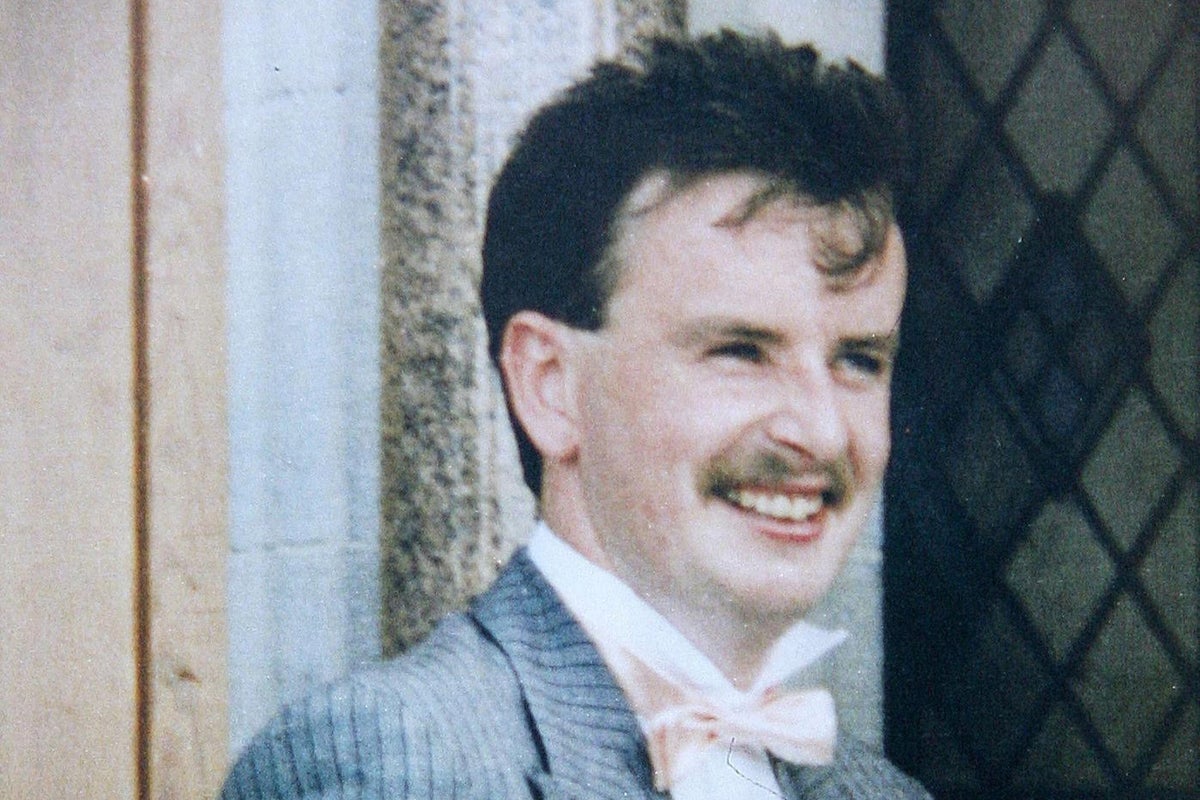
A report into the shooting of a man as he walked through an Army checkpoint in Northern Ireland found it “difficult to accept” the soldier’s claims about the incident, records show.
Aidan McAnespie died in Aughnacloy, Co Tyrone, in February 1988.
The 23-year-old was on his way to a local Gaelic Athletic Association club when he was shot by a Grenadier guardsman.
Records from the Irish state archives reveal the Crowley Report findings into the shooting.
The report was compiled after the Irish government appointed then-Garda deputy commissioner Eugene Crowley to investigate Mr McAnespie’s death.
Mr Crowley said it was difficult to accept the soldier’s claim his fingers slipped while cleaning the gun, causing him to shoot at Mr McAnespie.
In his report, he said he found it was “too much of a coincidence” that the gun went off accidentally while Mr McAnespie was in his sight.
The former soldier, David Jonathan Holden, 53, was recently found guilty of killing Mr McAnespie.
Holden was convicted of manslaughter by gross negligence at Belfast Crown Court last month.
He admitted firing the fatal shot but said he fired the weapon by accident because his hands were wet.
The Crowley Report took statements from 49 people.
The document, labelled “secret”, said it was impossible to establish “with evidence” if the shooting was deliberate or otherwise, nor was it possible to establish positively whether only one shot or more than one shot was fired.
It said Mr Crowley’s opinion is a short burst of three or four shots was fired from a general purpose machine gun and the shooting was not a deliberate act by the soldier involved.
It is difficult to accept the soldier's reported defence that his fingers slipped when cleaning the gun. It is too much of a coincidence that the gun went off accidentally while McAnespie was in the sights— Eugene Crowley
It said it is “open to conjecture” that Holden had Mr McAnespie in his sights and, “with whatever thoughts there may have been in his mind on what he would wish to do to him, he accidentally discharged a burst of fire”.
“It is difficult to accept the soldier’s reported defence that his fingers slipped when cleaning the gun. It is too much of a coincidence that the gun went off accidentally while McAnespie was in the sights,” Mr Crowley said.
“McAnespie was walking southwards at the time with his back to the checkpoint and was shot by a ricochet bullet which entered his back.”
The report said the Royal Ulster Constabulary (RUC) suspected Mr McAnespie of gathering intelligence about the movement of security force personnel in the Aughnacloy area and supplying details to the local unit of the IRA.
“He was subjected to an excessive amount of harassment by the security forces, which, in Mr Crowley’s opinion, went beyond the bounds of necessity and was not in accord with what one would expect from trained, disciplined personnel,” the findings added.
“The enquiry also received complaint of harassment generally, mainly of the young male population of the Aughnacloy area.”
The document also gave the findings of Dr John Harbison’s post-mortem examination report.
It said the bullet which hit Mr McAnespie did so in the back and exited his chest.
“There is little alternative explanation for his injuries than that of a bullet ricocheting off the ground a very short distance behind him and entering his body on the upward rebound while tumbling in flight,” the report said.
“This is based on the direction of bullet travel from back to front; the vertical slit-like entry wound in the back in the shape of a bullet ‘sideways-on’; the steeply riming trajectory of the bullet in the body (over 50° above the horizontal).”
The document said statements made to Mr Crowley were taken on the basis of confidentiality and the report should not be published or made available to anybody other than the government.
The Irish Government has long said the full report into Mr McAnespie’s killing will not be released to protect the identity of the witnesses.
The material can be viewed in the National Archives in file 2021/51/224







